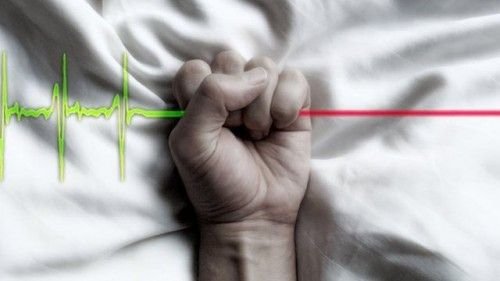The term Euthanasia comes from the ancient Greek "eu" which translates as "good" and "tanathos", which is equivalent to "death"; Good to die. And it is defined as "the action or omission that accelerates the death of a terminally ill patient with the intention of avoiding pain and suffering".

Recently in one of my hospital guards a very particular situation happened to me with a patient and his relatives.
The 95-year-old patient, named JN, has been admitted 2 days before my guard in the context of pulmonary fibrosis superinfected with marked respiratory deterioration, his family refused to any type of invasion and preferred to let the disease run its course.
Already in my guard the patient had 48 hours in the process of agony with progressive deterioration of the neurological state but was maintained with hemodynamic stability, and at approximately 8 pm (12 hours on call) one of the daughters approaches and with a very sad face asks me an important question:
"Dr. My dad, Mr. JN of bed 8, is very bad for two days and he is suffering a lot, I know that oxygen is what keeps him clinging in. Could you please take it away from him? I can not stand seeing him suffer more"(between tears).
It is then when come across the moral dilemma of letting the patient die and ending their suffering and granting a good death or continuing to adhere to the principle of nonmaleficence and not to cause harm in a human being.
The truth is that doctors are educated with the intention of saving lives and not with the aim of letting them die, of doing everything humanly possible so that the patient can progress satisfactorily and leave home and continue living. We are taught that we should be and give LIFE. But there is a point in which to continue living only means to continue prolonging the suffering and the agony, and that is where I think that professional maturity and good sense must exist and more than generate a death, provoke the rest of a human being, that it is more than blood and tissues; It is soul and links with their relatives, who also suffer when they see their mother, father or brother coexisting with suffering.

In the end, after fine-tuning certain legal procedures, patient JN had his oxygen supply stopped and he died 30 minutes later.
The truth is that euthanasia will depend on the eyes of those who see it, the position from which it is assumed (patient, family member, doctor) and will always bring with it a huge moral dilemma; since it really is not well defined, but Exist the right to die?


Peace, Abundance, and Liberty Network (PALnet) Discord Channel. It's a completely public and open space to all members of the Steemit community who voluntarily choose to be there.Congratulations! This post has been upvoted from the communal account, @minnowsupport, by luispinto from the Minnow Support Project. It's a witness project run by aggroed, ausbitbank, teamsteem, theprophet0, someguy123, neoxian, followbtcnews, and netuoso. The goal is to help Steemit grow by supporting Minnows. Please find us at the
If you would like to delegate to the Minnow Support Project you can do so by clicking on the following links: 50SP, 100SP, 250SP, 500SP, 1000SP, 5000SP.
Be sure to leave at least 50SP undelegated on your account.